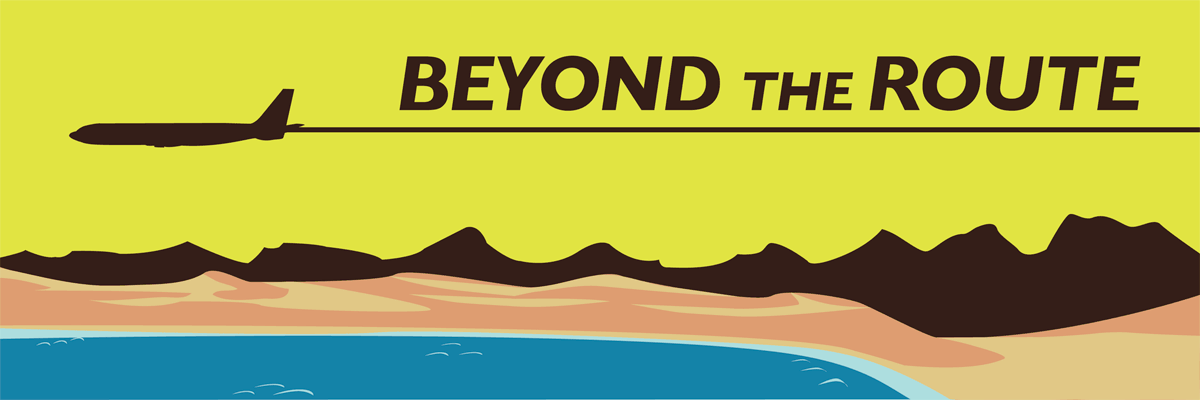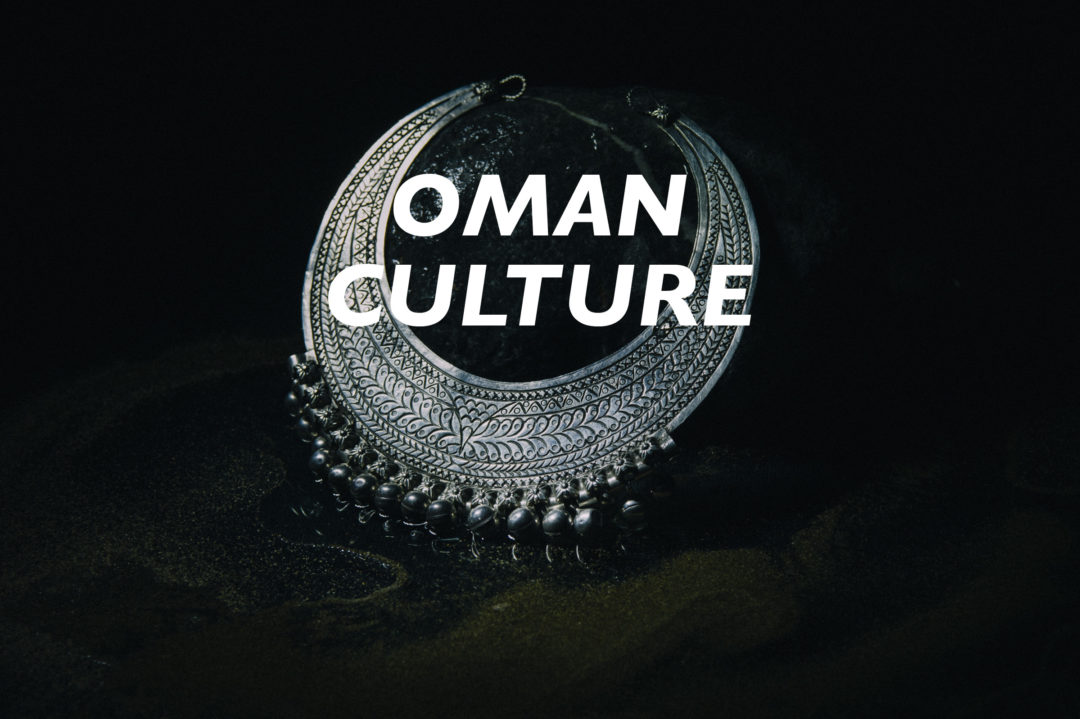Food
Omani food is highly influenced by its regional neighbors. For example, Omani ‘samosas’ are nearly identical to Indian ‘samosas’. Keeping with this theme rice is served with almost every Omani meal, as is with other asian cuisine.
The quintessential Omani meal is shuwa, a spiced meat (camel, beef, or mutton) wrapped in burlap and slow cooked in the the ground. Think of it as an Omani version of kālua, Hawaiian underground oven cook meat for a luau. Shuwa is served with rice and a number of traditional sides, some better than others.
Dates are major agricultural export and also serve as a major staple food. If you are lucky enough to be invited into a local home you will most likely be served local dates along with khawa, a local spiced coffee. Your little cup of coffee will be continually filled unless you indicate you have had enough by shaking your cup in a twisting motion like are turning a circular radio-dial back and forth. Dates and khawa are a perfect combination, and you are in for a treat.
In Muscat it is common for locals to go out late into the evening. There are two places I find very fun and good examples of modern Omani city life; Tea Corners and Shawarma shops:
Tea Corners serve all day from early in the morning and specialize in an Indian form of spiced tea, locally called karak. Karak originates from the asian sub-continent where it is called masala chai and consists of a black tea base with spices, milk, and sugar. Tea Corners can be found all over Muscat, as well as recently found in larger cities away from Muscat.
Shawarma shops specialize in the sale and preparation of shawarma, a grilled meat on a vertical spit served in sandwiches; similar to Turkish döner kebabs and Greek gyros. Mostly found in the evening, these places serve up amazing sandwiches and are often jammed with Omanis honking for attention from the car server.
Education
Oman has a modern educational system run by the government available to all Omani children as well as a number of private schools of varying qualities.
Government run primary schools are gender separated and can be found all over Oman, even in the quietest wadis where few people live. In the mountainous regions you will find Land Cruiser FJ70 series long-wheelbase ‘busses’ hauling kids around.
Secondary schools see less number of girls in attendance and often times boys drop out to seek jobs, more commonly in the rural areas of Oman.
Oman has a number higher education schools, both private and public; and also sends large amount of students for education outside of the sultanate on government grants. Six technical colleges around the sultanate offer technical skills to Omani students that include degrees in Engineering, Information Technology, Applied Sciences, Business Studies, Pharmacy, Photography and Fashion Design.
Dress
Dress is an important part of Oman culture.
Like Oman’s gulf neighbors, Omani men wear a dishdashah, typically white but not always. What distinguishes an Omani dishdashah from other GCC nations is the modest design; front slit opening; long collar tassel; embroidery around the wrists, neckline, across the back, and around the slit opening; and plain cuffs. Omani men can be found with a massar (wrapped headdress) or kuma (simple, embroidered, brimless, cap)
Today, mens dess is the same as in earlier years apart from the younger generations occasionally wearing western clothes out in the evening or sports clothes during football games.
Traditional dress for women is spectacular and a real treat to see when in the interior. Women’s dress can be found in many different styles and colors depending on the region of Oman, but basically consist of: dishdashah (a dress); narwal (trousers); waqaya (a head cover that wraps around the head); or lahaf (a head cover that drapes over the head). All items are either highly colorful or extremely embellished.
The modern women today will not wear this traditional dress around town in Muscat. Today’s dress consists of modern clothes underneath a gently decorated black abaya and hijab headdress.
Religion
Oman is a Muslim country and uniquely a muslim country where Shia or Sunni islam is not dominate. Between 60 and 70 percent of Omanis are Ibadi, a denomination of Islam that is conservativly-moderate and tolerant. Most Omanis adhere to common Islamic practices including: the prescribed five prayers per day; and strict Ramadan practice (including the forbidding of non-muslims to eat and smoke in public). Despite the prevalence of Islam, some ancient folk rituals and superstitions are practiced as well.
Social Stratification
The Omani social structure is based on family connections, relative wealth, and religious education. One can see this by viewing the names of the some of the largest companies in Oman, which are named after the merchant families that founded them and continue to operate them today: Zubair, Bahwan, Khimji, Zawawi… These families, along with others, gathered great wealth trading goods. Many can trace their heritage back to India in ancient times.
Social Welfare
Social welfare is basically handled within the family, where the needy are looked after by family relative networks. Meanwhile, The Ministry of Social Affairs, Labor, and Vocational Training is tasked with making payments to the elderly, widowed, divorced, and the disabled.
Politics
Oman is an absolute monarchy with His Majesty Sultan Qaboos bin Said holding all top positions. H.M. Qaboos rules by decree and appoints a cabinet of ministers. Cabinet members from merchant families are overrepresented, while H.M.’s family is underrepresented.
Omani law is based on a mix of western and Islamic law with 4 courts: Elementary Court, Court of Appeal, Supreme Court, and the Administrative Court.
The Majlis al-Shura is a consultative council of elected members that are then approved by the Sultan. The Majlis reviews legislative drafts by the service ministries and provides recommendations. The Majlis has no authority on defense, finances, foreign affairs, and security.
Military
The Sultan of Oman’s Armed Forces originated as tool to counter domestic dissent, most notably during the late 50’s Jebal Akdar War and during the late 60’s-70’s Dhofar Rebellion. Since these times the possibility of internal strife has waned. However, the armed forces are well funded taking a, yet shrinking, 11.8% of GDP in 2014 according to World Bank, making Oman a top ranked spender.
The Sultan of Oman’s Armed Forces, which includes the Royal Oman Police is a top employer of Omanis. And persons belonging to the Military or a Security Service are unable to vote during service extending to two year after employment.
Conversation and Taboos
When having conversations with Omanis keeping to soft topics is suggested to be respectful. Most common topics of conversation if started by an Omani will include: your country, martial status, number of children, age, religion, profession, and what you have/will see in Oman.
The above list will work for most asian countries with the addition of income, ha. Yes, asians love to ask how much you make, and do not understand this is a taboo subject for western travelers.
I like to do a little research and learn how to respond to each question with the local language, something I suggest you do too, and place it on a notecard or in a notebook you keep with you.
Omanis are very tolerant and respectful of other religions, but do not understand the idea of atheism or agnosticism, and you might find it easier to say your are Christian instead. This probably goes if you are practicing any other religion other than Islam, to keep things simple.
Almost all Omanis revere H.M. Sultan Qaboos, just have a look around any lobby or main entrance to a business. You will always find a portrait of H.M., and to the best of my knowledge, it is not a requirement to hang his portrait. With that said, you should refrain from criticizing him or his government in conversation with Omanis. Other taboos topics include:
- Politics
- Civil Liberties
- Religion (other than stating your ‘practice’)
- Regional Turmoil
Behavior
Operating as a westerner in the Omani culture can be a frustrating task, especially on the road in traffic. No matter how pissed-off you get you should always keep your cool. Offensive behavior and being disrespectful toward Omani culture could land you in major legal trouble.
For an example, I once sat on a flight next to a recent expat in the oil industry who flipped the ‘bird’ to fellow commuter who cut him off. The police were called, an arrest was made, time in jail was spent, layers were hired, and his passport was surrendered…. Just keep your cool, turn up the tunes and AC, and let Allah deal with anybody being rude toward you, Inshallah.

